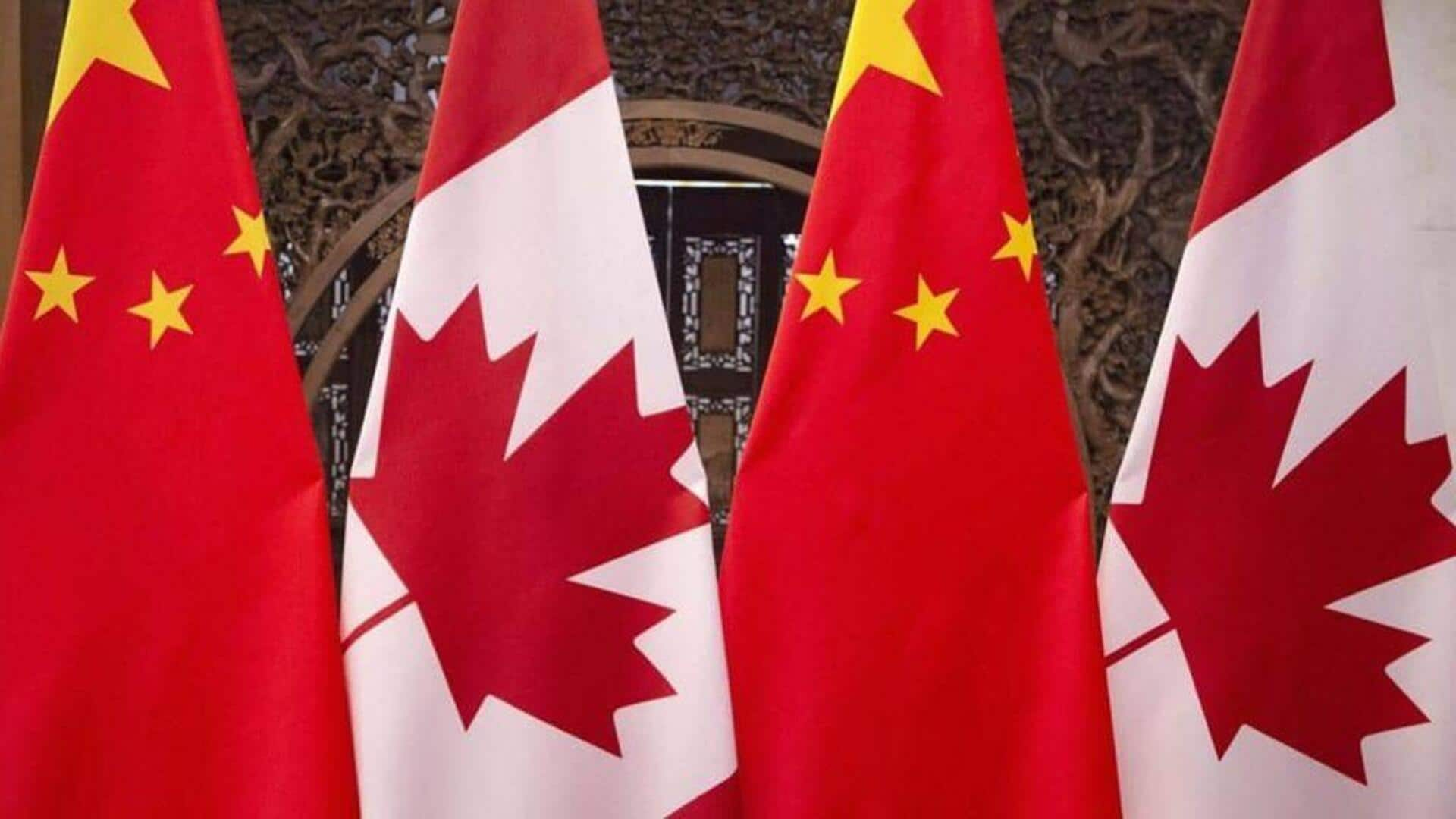
Tariff wars: China retaliates with levies on Canadian agricultural products
What's the story
China has declared a round of tariffs on Canadian agriculture and food products after Canada imposed import levies on Chinese electric vehicles (EVs) and steel and aluminum goods. The new tariffs, effective March 20, mark an escalation in the ongoing trade dispute between the two countries. The conflict is part of a broader trade war largely driven by US President Donald Trump's announcement of tariffs on Canada, Mexico, and China.
Tariff details
Tariffs on Canadian products
The Chinese Ministry of Commerce has announced that a 100% tariff would be slapped on Canadian rapeseed oil, oil cakes, and peas. Moreover, a 25% duty will be imposed on Canadian aquatic products as well as pork. These are viewed as China's retaliation against Canada's import levies, which were imposed in October 2024.
Trade dispute
China's response to Canadian tariffs
In a statement, the Chinese Ministry of Commerce called Canada's tariffs on Chinese EVs and steel and aluminum products violations of World Trade Organization rules. The ministry called them "a typical act of protectionism and discriminatory measures that severely harm China's legitimate rights and interests." China happens to be Canada's second-largest trading partner, surpassed only by the United States.
Justification
Trudeau's rationale for imposing levies
Canadian PM Justin Trudeau said last August that his government was imposing levies on China to counter what he called China's "intentional state-directed policy of over-capacity." In this regard, he followed the lead of the US and the European Union, both of which also applied import levies to Chinese-made EVs earlier.